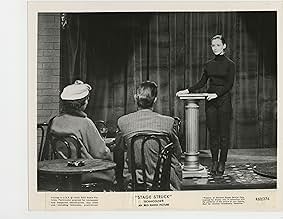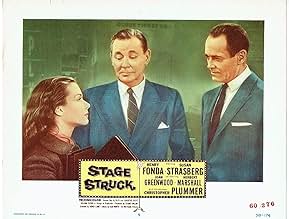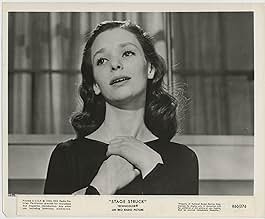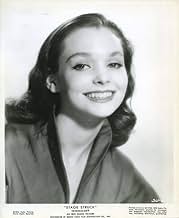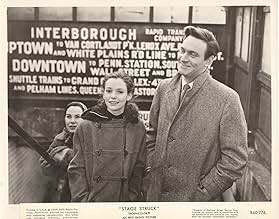Susan Strasburg was method acting guru Lee Strasburg's daughter.The film is peppered with acting luminaries such as Henry Fonda, Christopher Plummer and Herbert Marshall. I was however strongly reminded of a film on a rather similar theme "All about Eve" where again an ambitious young novice actress seeks to advance her career - at the expense of ageing actress played by Bette Davis. The screenplay by Joseph L. Mankiewicz has become immortal as in "Fasten your seatbelts, it's going to be a bumpy night! ".
Not one line of Stage Struck is memorable. My attention was only briefly attracted by something surely unintended around 30 minutes in. Strasburg, Fonda and Herbert Marshal perform part of a Shakespeare play. Henry Fonda was OK but Susan Strasburg quacked and gave no indication of promise even. But Herbert Marshall spoke his lines wonderfully. Marshal, I suddenly realised had wasted and misdirected his talents, not least here.
Interesting Herbert Marshall trivia: During the First World War, Marshall served ... with fellow actors Basil Rathbone, Ronald Colman, Cedric Hardwicke and Claude Rains. (Wikipedia) Coincidentally perhaps the greatest and most distinctive vocal talents in cinema history.


